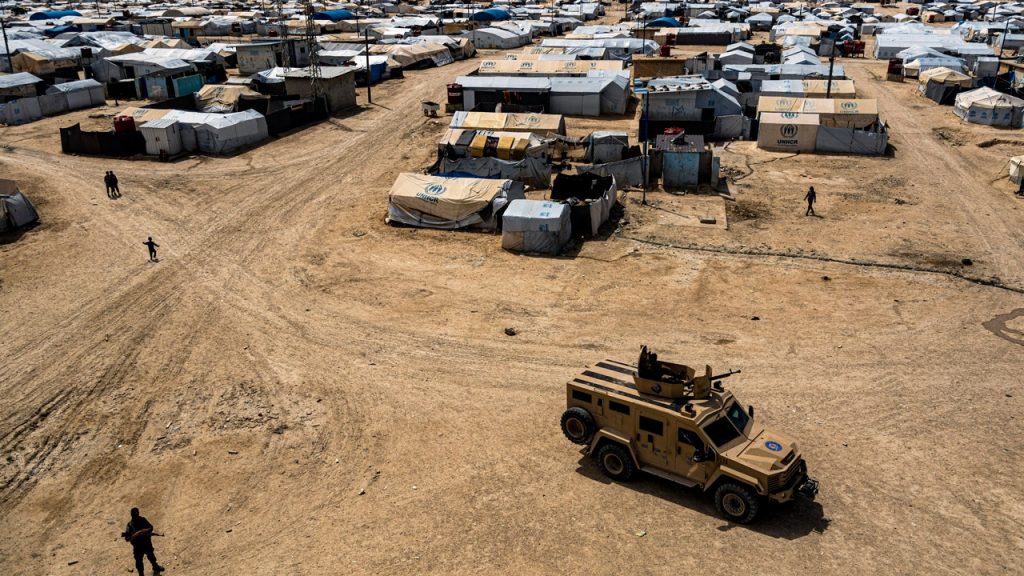The Kurdish-led authorities in northeastern Syria have handed over 50 women and children, who are family members of Islamic State militants, to a delegation from Tajikistan for repatriation back home. These individuals, who are all citizens of Tajikistan, were handed over to a delegation led by the Tajik ambassador to Kuwait. After the Islamic State group declared its caliphate in Syria and Iraq in 2014, many foreigners, including hundreds from Tajikistan, came to join and live with their families in the so-called caliphate. Most of the militants’ family members were held in al-Hol and Roj camps in northeastern Syria after IS was defeated.
The women and children were taken to the airport of Qamishli, where they boarded a plane to be reunited with their families in Tajikistan. This repatriation came after an attack on a suburban Moscow concert hall carried out by four suspected attackers who were identified as Tajik nationals, resulting in the death of 144 people. IS claimed responsibility for the attack, stating that four of its fighters had targeted the hall in Russia. Thousands of people, mostly Iraqis, have been repatriated from al-Hol over the past few years, as the population dropped from 73,000 to about 43,000. The heavily-guarded al-Hol camp is overseen by Syrian Kurdish-led forces allied with the United States.
Tajikistan has reported that over 1,000 fighters from the country joined extremist groups in Syria and Iraq at the height of IS, including Gulmurod Khalimov. Khalimov was an officer with Tajikistan’s special forces who defected and joined IS in Syria in 2015, eventually rising to become one of its top military commanders. In 2017, the Russian military reported that Khalimov was killed in a Russian airstrike in Syria’s Deir el-Zour province. This repatriation of Tajik citizens is not the first, with previous instances in which 104 individuals were returned home in May, and 146 women and children were repatriated the year before.
The situation in northeastern Syria highlights the ongoing challenges faced by countries dealing with the repatriation of their citizens who traveled to join extremist groups such as IS. The repatriation of Tajik citizens is part of wider efforts to address the issue of foreign fighters and their families following the defeat of IS in the region. It also underscores the need for cooperation between different countries and authorities to address the complex security and humanitarian challenges posed by the return of individuals with connections to extremist groups. The repatriation process involves coordination between Kurdish-led authorities in Syria, the Tajik government, and other relevant parties to ensure the safe return and reintegration of individuals back into their home countries.


